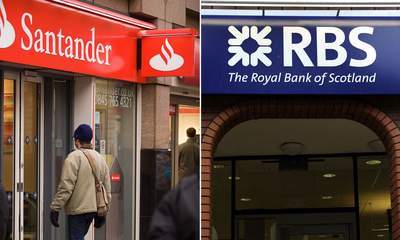 The proposed sale of 316 RBS and Nat West branches to Santander has fallen through after more than two years of negotiations. This is a good example of the importance of “closing the deal” when you get the chance. Closure is a fluid moment, and if you take too long you can miss the moment and find the deal collapses on you.
The proposed sale of 316 RBS and Nat West branches to Santander has fallen through after more than two years of negotiations. This is a good example of the importance of “closing the deal” when you get the chance. Closure is a fluid moment, and if you take too long you can miss the moment and find the deal collapses on you.
RBS was originally ordered to sell the branches by the European commission as a condition of it receiving “state aid” at the height of the financial crisis, when RBS became state owned. An agreement to sell the branches was signed in August, 2010, and at that time the parties said that it would take them 15-18 months to complete. However, the IT task of separating out the 1.8 million RBS customers affected by the sale from the rest of the RBS database has seemingly proved beyond them, even though many of those customers had already been allocated new sort codes and account numbers, and, as RBS CEO, Stephen Hester, put it “Much of the heavy lifting has already been done”. Nonetheless, after two missed deadlines for completion, a recent Accenture report apparently noted that it would be the middle of 2015 before the transaction was in fact ready to complete. Santander seems to have concluded that the deal was going to take too long and has pulled the plug on it.
This turn of events is not surprising. If you wait too long to close a deal, any number of factors can cause a problem with completion. The other side can get deal fatigue, or buyer’s remorse, or key characters on the other side may leave. The other side may identify alternative competitors it wants to deal with instead. Economic factors may change one party’s position – some commentators suggest that Santander’s decision has less to do with IT problems than the continuing weakness of Spanish banks and the Spanish economy, with Santander reluctant to reduce its capital levels by completing the £1.65 billion deal, at a time when its group balance sheet in Spain is under close scrutiny from the European Banking Authority.
This now creates a problem for RBS which has until the end of 2013 to find a buyer as part of the EU conditions. Fifteen months doesn’t seem long, although RBS may lobby the EU for an extension – which would seem pretty sensible, so that it is not negotiating against that deadline.
Virgin Money, which originally lost out to Santander, has apparently already registered its renewed interest in the 316 branches, but of course it senses a predatory advantage and reputedly values the deal at £1 billion less than the price tag attached to the Santander deal.
Whatever happens next, you would expect that if a new buyer can be found which puts a value on the branches which is satisfactory to RBS and its owners – mainly us, the taxpayer – then a deal will be concluded more quickly. RBS will not want another opportunity to slip through its fingers because they take too long to Close the Deal…

